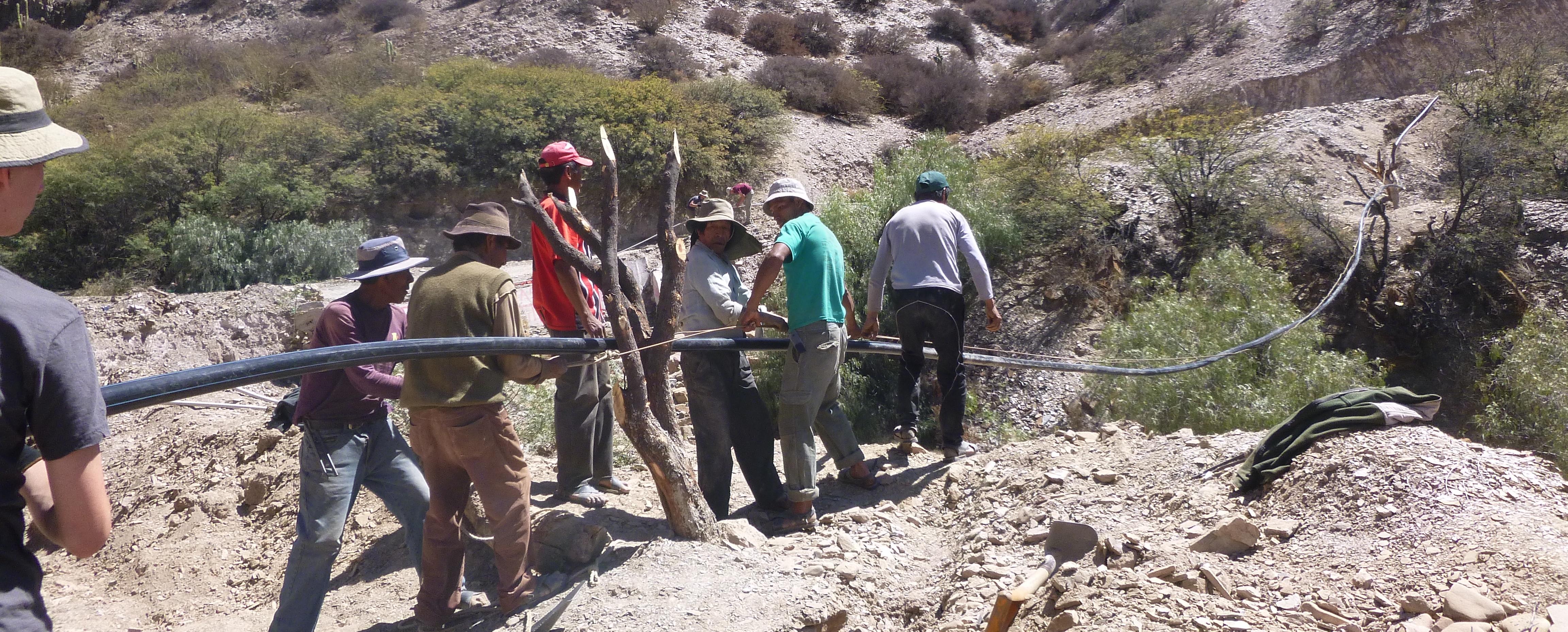
Background
Yulo is a small community of about 150 residents located in south-central Bolivia. The community is composed of mostly subsistence farmers, growing a variety of crops, including corn, potato, barley, and peaches. These crops are irrigated by the Juckuch a River, which is heavily contaminated by centuries of acid mine drainage from abandoned mines 80 km upstream. This contamination leads to dangerously high levels of several heavy metals in the water, the local crops, and even the people of Yulo themselves. Although regional river remediation efforts are underway to treat the source of the contamination, water quality remains poor. For this reason, the community formed a water committee and reached out to Engineers in Action (FIEA), an NGO based in La Paz, to improve the quality of the water used for their agricultural needs. In turn, FIEA contacted EWB-USA UMN to begin the process of improving Yulo’s water supply.
Project Design and Implementation
While our chapter was originally contacted to help the community to help deal with the contaminated river, on our first assessment trip in 2014 the community members informed us that a new need had arisen that was even more pressing: drinking water. Although the current potable water system in the community still functions, some key elements are in need of improvement and repair. In the summer of 2015, a team of students traveled to Yulo to insulate and protect two sections of critically exposed piping in the community – one of which had a constant problem with freezing.